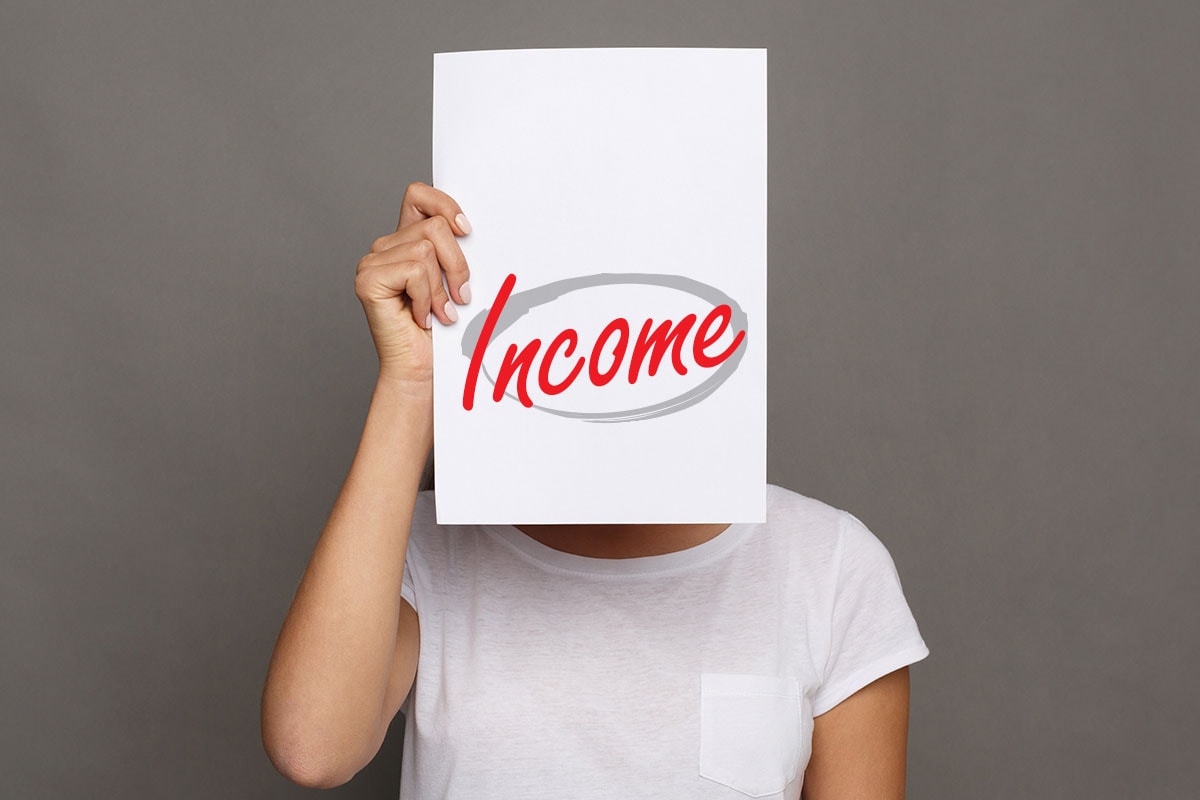Proof of Income Explained: What You Need to Know and How to Verify It

Table of Contents
What is Proof of Income?
Proof of income refers to any document that verifies your earnings and demonstrates financial stability. Landlords, lenders, employers, and government agencies often require this documentation to confirm that you can meet financial obligations. Whether you’re renting an apartment, applying for a loan, sponsoring a visa, or showing eligibility for aid, these documents provide reliable, third-party evidence of your income.
Common examples include paystubs, W2s, 1099-NECs, bank statements, and tax returns. For larger financial transactions like mortgages or business loans, institutions may request multiple types of proof for added verification.
Who Needs Proof of Income?

While everyone may need it at some point, certain groups are especially likely to be asked:
1) Job Seekers and Employees — Employers may require proof of income during background checks or onboarding. Offer letters, paystubs, or W2s can confirm earnings.
2) Renters and Prospective Tenants — Landlords rely on paystubs, bank statements, or verification letters to ensure tenants can afford rent.
3) Self-Employed and Freelancers — Independent workers prove income with 1099-NECs, tax returns, bank records, or profit-and-loss statements.
4) Students — Financial aid applications often require income documentation from either the student or parents, such as tax returns, paystubs, or award letters.
5) Immigrants and VISA Applicants — Agencies like USCIS (United States Citizenship and Immigration Services) may request W2s, paystubs, and bank statements to evaluate financial eligibility.
6) Loan and Credit Applicants — Lenders verify steady income with tax returns, 1099s, or employment letters.
7) Business Owners — Those seeking business funding or credit may provide profit-and-loss statements, bank records, or invoices.
8) Retirees or Those on Benefits — Social Security letters, pension statements, or 1099-R forms confirm steady post-retirement income.
The Most Common Proof of Income Documents
Different situations call for different types of documentation. Here are the most widely accepted options:
Paystubs – Show wages, deductions, and year-to-date totals. They’re fast to generate and widely recognized.
Bank Statements – Demonstrate consistent deposits and overall financial stability. Often used by freelancers and independent contractors.
Tax Forms –
- W2: Reports employee wages and tax withholdings.
- 1099-NEC: Reports contractor and gig worker earnings.
- 1099-R: Reports pension, annuity, or retirement distributions.
Tax Returns – Provide a comprehensive annual income record, required for loans, aid, and immigration.
Employment Verification Letters – Signed by an employer to confirm position, salary, and job status.
Invoices and Payment Records – Common for freelancers, gig workers, or small businesses.
Award or Benefit Letters – Used by retirees, students, or individuals receiving government benefits.
Proof of Income for Nontraditional Workers

Not everyone has access to employer-issued paystubs. Gig economy workers, freelancers, and independent contractors often need to pull together several forms of documentation to prove their earnings.
For example, many rely on payment summaries from apps like DoorDash or Uber that detail base pay, tips, and bonuses. Others provide bank statements covering multiple months to show consistent deposits and financial stability.
Independent contractors frequently use 1099-NECs from clients or platforms, while some supplement this with personal bookkeeping records or ledgers that track hours, payments, and expenses. To give a complete picture, many also include tax returns, which consolidate all sources of income into one verified report.
By combining these documents, nontraditional workers can present a stronger case when applying for loans, leases, or credit. The key is demonstrating consistency and clarity across different records.
Why Proof of Income Still Matters After Retirement
Even in retirement, proof of income remains essential. Retirees may need it to secure a lease, refinance a mortgage, or apply for supplemental healthcare coverage. Documents like Social Security award letters, pension statements, and 1099-R forms provide clear evidence of reliable retirement income.
FormPros Has You Covered
Simplify your paperwork with FormPros! From creating paystubs, W-2s, and 1099-NEC forms to generating LLC Operating Agreements and even voided checks, our easy-to-use platform has you covered. Save time, reduce errors, and handle your business documents with confidence. Start now and see how FormPros makes professional form generation fast, affordable, and hassle-free!
FAQs
-
What if my income varies month to month—how can I prove it?
If your income is inconsistent, such as from gig work or seasonal jobs, submit a combination of documents—like several months of bank statements, a freelance contract, and previous 1099 forms—to show average monthly income and long-term earning patterns. Highlighting consistency over time builds a stronger case.
-
Can unemployment benefits count as proof of income?
Yes, many institutions accept unemployment benefit statements as proof of income. You can provide official letters or payment summaries from your state’s unemployment office. However, since these are temporary, you may also need to show savings or alternative income sources.
-
Does child support count as income for rental or loan applications?
It can. Child support payments are considered a valid source of income if they are consistent and documented. You can use court orders, bank deposit records, or payment receipts to verify this income with landlords or lenders.
-
Do I need notarized documents to verify income?
Generally, notarization isn't required for standard proof of income documents like paystubs or tax forms. However, if you create your own income letter—such as a self-employed declaration—some landlords or agencies may request notarization to verify authenticity.
-
How far back should I go when providing income proof?
Most lenders and landlords ask for income documentation covering the past 2 to 6 months. For bigger financial decisions like mortgages, you might need up to 2 years of tax returns. Always check the specific documentation window requested by the institution.
FormPros Can Help!
- Instant Download
- Preview Before You Buy
- Auto-Calculations
- Money-Back Guarantee